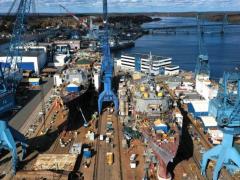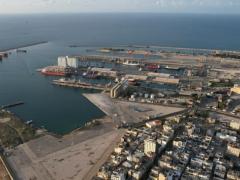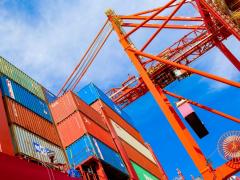A four-year-long battle over cargo dues and penalties has finally seen some resolution with Transnet National Ports Authority (TNPA) conceding to industry that certain payments are unfair. Importers, who to date have had to pay a R273.09 cancellation fee to amend or cancel cargo dues, will in future no longer have to pay this penalty on condition the amendment is the result of port congestion, the port being wind-bound, strike action or labour unrest in the port, or vessel engine failure. “The ports online system through which we submit cargo dues electronically has no function to amend cargo dues and is also not linked between the ports. So any changes to a vessel schedule after cargo dues have been submitted and paid results in a cancellation having to be filed. This carries a penalty of R273.09 and then a new submission has to be made and the dues paid again,” said Clifford Evans, assistant import manager for Meihuizen International, who was one of the key drivers in bringing the issue to the forefront. “Essentially this means if the Port of Cape Town is wind-bound and the vessel does not dock we have to pay the penalty for cancelling our cargo dues and re-submit the entire document. Much of that also happens manually.” Transnet has always insisted that three days are allowed within which to submit cargo dues after the vessel docks. But this is not a solution when vessels dock over weekends and release cannot be obtained from the shipping line without a cargo dues order being presented. Evans said this meant that often for a single container three sets of documents (two cargo dues and one cancellation) and three payments had to be made. “The second cargo dues payment is credited back but this often takes time. The question we raised was why should the importer carry the cost when the vessel is not docking due to circumstances out of their control. We have always been willing to pay a cancellation or penalty if it was due to a mistake of our making.” It is estimated that millions of rands are paid to TNPA annually in cargo dues penalties. In 2010 the issue came to a head when a vessel, the Newport Bridge, failed to dock in Cape Town due to engine failure and penalty fees had to be paid for all the containers on board. Evans, employed by Ceva Logistics at the time, with the support of Saaff brought the matter to the Port Regulator who lodged an investigation. What followed was a legal battle between TNPA and Saaff that was finally resolved recently via an agreement signed by all parties. “Our initial request was that TNPA upgrade their system to allow us to amend cargo dues instead of cancelling them and also to allow this to be done electronically. Our third request was that they do away with the cancellation fee,” Evans told FTW. “While we have reached agreement only on the cancellation fee and only for certain circumstances, this is a major step in the right direction as there is an economic benefit to our members.” He said in turn he and Saaff would retract their complaint with the Ports Regulator. “We are still calling on TNPA to upgrade their system to allow for electronic submission and to allow us to make amendments to cargo dues. Our basic argument has been that cargo dues are paid on the container number and not on the name of the vessel, the voyage number or which port it is being delivered to. So why do we have to pay a penalty when the container, whose the number has not changed, is being dropped off in Durban instead of Cape Town due to circumstances that are not of our doing or in our control?” He said a central gateways system was needed that allowed importers to submit cargo dues for a container number regardless of which port it was being delivered to. Evans said that the matter would now be placed on the agenda of the Ports Consultative Committee to see the agreement through.












